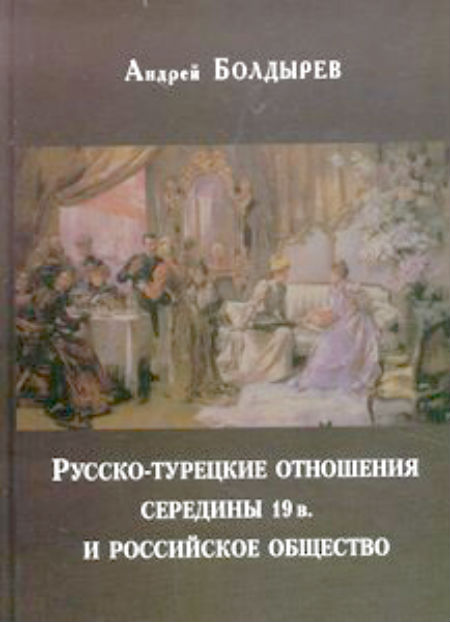Книга
 Русско-турецкие отношения середины 19 в. и российское общество
Русско-турецкие отношения середины 19 в. и российское общество
Болдырев Андрей Викторович
Ответственный редактор: Орешкова Светлана Филипповна
Москва, 2013, 496 стр.
Книга посвящена отношениям России и Турции в годы их обострения во второй половине 19 в. События даются на фоне дискуссий, развернув-шихся в России после Крымской войны 1853–1856 гг. Показана реакция российского общества на условия Парижского трактата и приводятся факты заключительного этапа Кавказской войны. Большое внимание уделено проблеме черноморской работорговли, получившей в России всеобщее осуждение. Использование автором большого объема мате-риалов и документов того времени делает книгу интересной и для спе-циалистов, занимающихся историей российско-турецких отношений, и для широкого круга читателей.
English version
This monograph is devoted to the Russian-Turkish relations viewed through the prism of Russia’s public opinion shaped within the period when complications in the relations between Russia and the Ottoman Empire came to the surface. The author explores such problems as the consequences of the Crimean War for Russia’s ruling and public circles, the slave trade in the Black Sea region and the attitude of the Russian society to these issues, as well as Russia’s stance towards the abolition of the Black Sea “neutralization” policies in the period when certain articles of the 1856 Paris Treaty were revised. The author specifically maintains that the attitude of the Russian society towards Turkey was determined by the policy of the Ottoman government in the Black Sea region. From the mid. of 1850s until early 1870s Russia and Turkey were engaged in pursuing sharply different political objectives in the Black Sea region. For this reason, the Russian society considered Turkey as a country seeking to secure a system that would undermine the position of Russia as a great European power. The traditionally hostile attitude to the Ottoman Empire also influenced the general view held by the public circles. The author notes that military and political aspects were prevailing in the public discourse regarding Turkey. As a result, most of the Russian society members believed that the gradual disintegration of the Ottoman Empire was in line with the Russian interests. The book is interesting not only for experts in the history of Russian-Turkish relations, but also for a wide readership.


